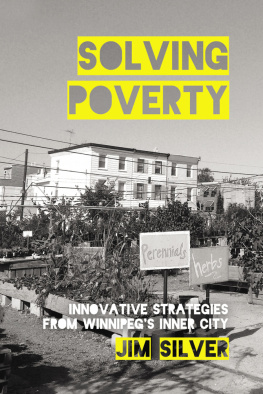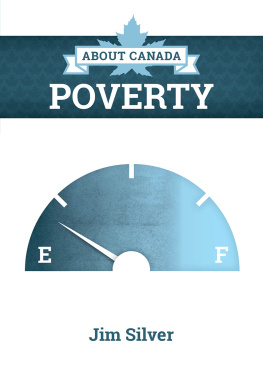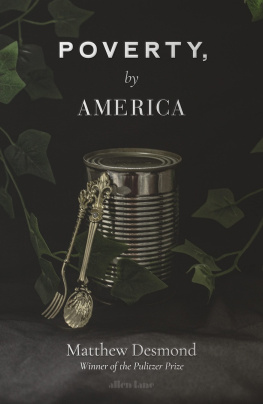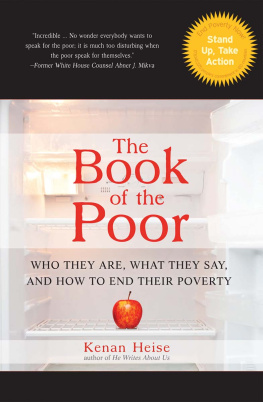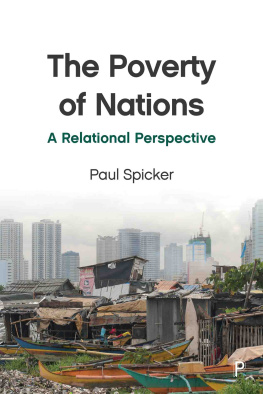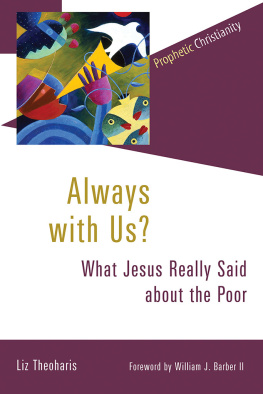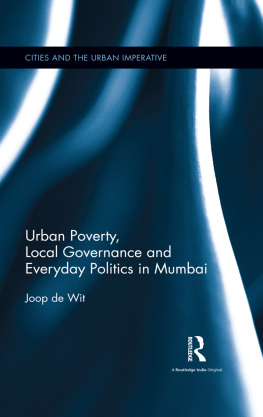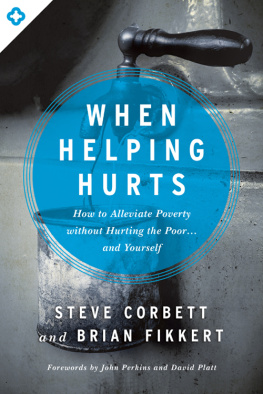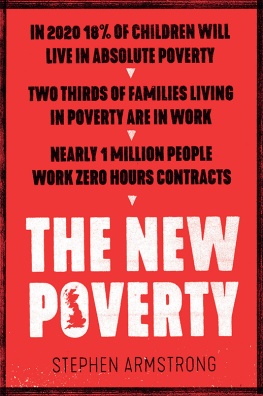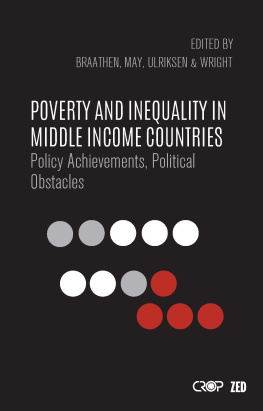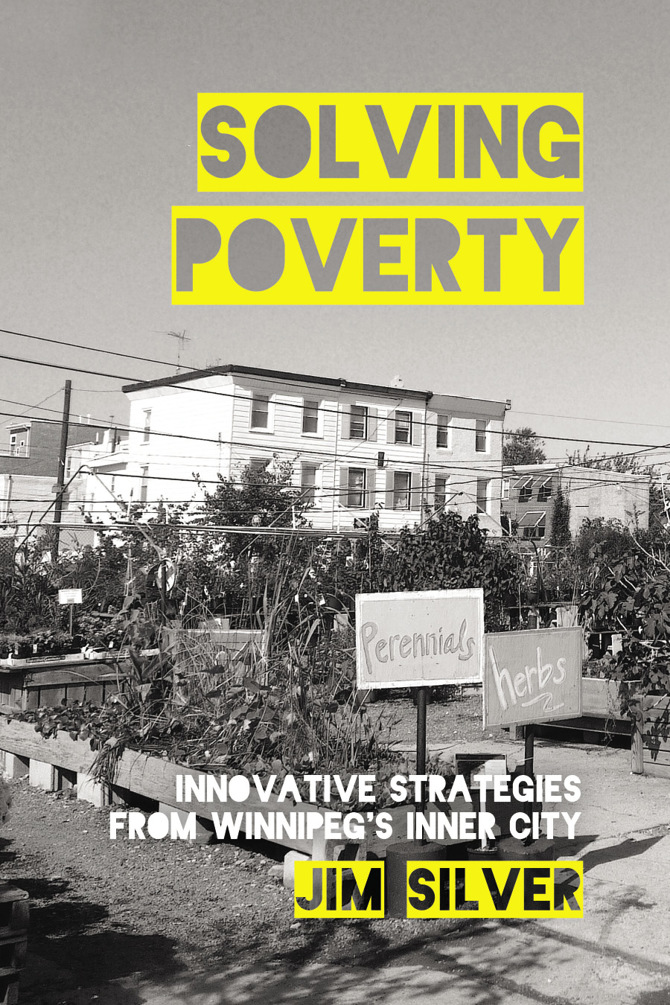Solving
Poverty
Innovative Strategies
from Winnipeg's Inner City
Jim Silver
Fernwood Publishing
Halifax & Winnipeg
Copyright 2016 Jim Silver
All rights reserved. No part of this book may be reproduced or transmitted in any form by any means without permission in writing from the publisher, except by a reviewer, who may quote brief passages in a review.
Editing: Brenda Conroy
Cover design: John van der Woude
Printed and bound in Canada
Published by Fernwood Publishing
32 Oceanvista Lane, Black Point, Nova Scotia, B0J 1B0
and 748 Broadway Avenue, Winnipeg, Manitoba, R3G 0X3
www.fernwoodpublishing.ca
Fernwood Publishing Company Limited gratefully acknowledges the financial support of the Government of Canada through the Canada Book Fund, the Manitoba Department of Culture, Heritage and Tourism under the Manitoba Publishers Marketing Assistance Program and the Province of Manitoba, through the Book Publishing Tax Credit, for our publishing program. We are pleased to work in partnership with the Province of Nova Scotia to develop and promote our creative industries for the benefit of all Nova Scotians. We acknowledge the support of the Canada Council for the Arts, which last year invested $153 million to bring the arts to Canadians throughout the country.
Fernwood Publishing gratefully acknowledges the financial support of the Social Sciences and Humanities Research Council through the Manitoba Research Alliance Grant: Partnering for Change - Community-Based Solutions for Aboriginal and Inner City Poverty.
Library and Archives Canada Cataloguing in Publication
Silver, Jim, 1946-, author
Solving poverty : innovative strategies from Winnipegs inner city
/ Jim Silver.
Includes bibliographical references.
Issued in print and electronic formats.
ISBN 978-1-55266-821-4 (paperback).--ISBN 978-1-55266-854-2 (epub).-
ISBN 978-1-55266-855-9 (kindle)
1. Low-income housing--Manitoba--Winnipeg. 2. Poor--Manitoba-
Winnipeg. 3. Poverty--Manitoba--Winnipeg--Prevention. 4. Winnipeg
(Man.)--Social conditions. I. Title.
HD7287.96.C32W55 2016 363.59694209712743 C2015-908506-3
C2015-908507-1
CONTENTS
This book is dedicated to those who are struggling to survive the complex poverty that is described in this book, and those who are struggling to defeat it.
Acknowledgements
The essays in this book are the outcome of two decades of work as an ally, activist and researcher in Winnipegs inner city, where I have had the privilege of working with a community of progressive researchers and activists, many associated with the Manitoba Research Alliance and the Canadian Centre for Policy Alternatives-Manitoba, others working in various ways in other community organizations. These remarkable people make Winnipegs inner city a particularly exciting place to be and to work, and I have learned much from a list of people too long to name individually. Thanks to each of you for all you have taught me as we have struggled together to contribute to the changes taking place in Winnipegs inner city.
I particularly want to acknowledge the ongoing support and encouragement of my long-time friends and colleagues with the Manitoba Research Alliance, especially John Loxley, principal investigator of the mra , Shauna MacKinnon, Elizabeth Comack and Lynne Fernandez.
I enjoy and always benefit from working with others on research projects, and the co-authors of the essays in this volume have all been a pleasure to work with. Thanks to Elizabeth Comack, Lawrie Deane, Parvin Ghorayshi, Janice Goodman, Joan Hay, Cheyenne Henry, Darlene Klyne, Molly McCracken, Larry Morrissette, the late Freeman Simard, Kate Sjoberg and Carolyn Young.
I am also happy to acknowledge, once again, the people at Fernwood Publishing who have been involved with this book: Beverley Rach, Brenda Conroy, Debbie Mathers, John van der Woude and in particular my good friend Wayne Antony, with whom I have worked on books and other projects for many years.
For the funding that made possible the research that led to the essays in this book, I am pleased to acknowledge the generous financial support of the Social Sciences and Humanities Research Council of Canada through a current Manitoba Research Alliance grant, Partnering for Change Community-Based Solutions for Aboriginal and Inner-City Poverty, and two previous sshrc grants held by the mra .
As always and most importantly, a special thanks to Loa Henry, my wife and partner in all things for many years and a constant source of love and support.
Introduction
Complex Urban Poverty
and the Case of
Winnipeg's Inner City
In low-income urban areas across Canada, poverty is deeply rooted, racialized and much more complex and destructive than is generally recognized. It damages, and in some cases destroys, the lives of those who experience it. It produces costs for society as a whole in the form of higher health care, criminal justice and child welfare costs, for example, and lower tax revenues. These costs are almost certainly greater than those that would be incurred if we invested the public dollars needed to solve poverty-related problems. Winnipegs inner city is a particularly vivid example of this complex and costly urban poverty.
This book is comprised of essays on Winnipegs inner city that I have published over the past decade. They are the product of my practical, on-the-ground involvement with a variety of inner city community-based organizations over the past twenty years and my collaboration with those associated with the Manitoba Research Alliance. What I have experienced in regard to Winnipegs inner city can tell us much about poverty, its effects and its solutions elsewhere. Essays that focus primarily on the nature of the problems of poverty appear in the first half of the book, while those that focus primarily on solutions appear in the second half of the book. These essays have been somewhat revised, with some additional information. They have also been edited for length and to reduce repetition between chapters, but none of the original intent or analysis has been changed.
Winnipegs inner city is a contradictory space. It is deeply stigmatized and stereotyped, and is consistently subject to racist interpretations. At the same time, Winnipegs inner city is home to remarkable creativity, driven largely by community-based organizations ( cbo s) engaged in innovative and effective anti-poverty practices. For the most part, this work is unknown to most outside the inner city. When these cbo s work closely with inner city residents to design transformative anti-poverty initiatives, and governments invest the sums needed to adequately fund these initiatives, real gains are made. Indeed, in many cases, including some described in this book, the gains are so significant that they make apparent what too many people no longer believe that the racialized poverty of Winnipegs inner city, as deep and complex and damaging as it is, can be largely eradicated if, as a society, we choose to do so. The primary goal of this book is to make that case.
Understanding Racialized Poverty
To understand poverty I use a political economy approach, and all of the essays are informed and shaped by the historical and contemporary importance of colonialism. A political economy and colonialism lens is an antidote to the dominant way of understanding poverty. Poverty is typically blamed on those who are poor. The view is that they are the authors of their own misfortune they are lazy or drink too much or have too many kids. Hence, there is little public support for investing in anti-poverty initiatives. So an important part of solving poverty and all its related problems has to do with how we come to understand the causes of poverty.

